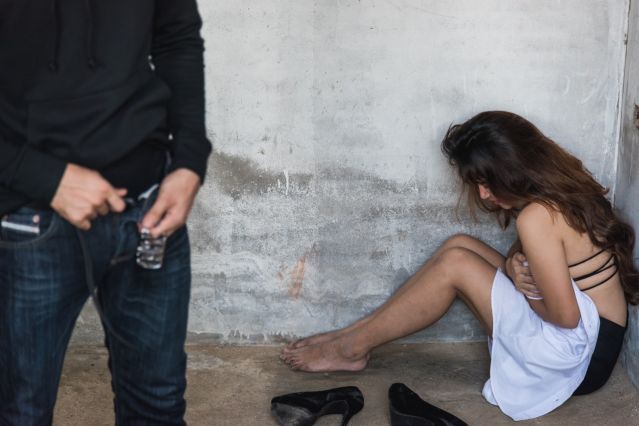Career
The Fight Against Human Trafficking in Ukraine
Even when police catch traffickers, getting evidence to convict is a challenge.
Posted August 5, 2023 Reviewed by Hara Estroff Marano
Key points
- Human trafficking rings are preying on Ukraine’s millions of refugees.
- The Kyiv Region Police has undercover officers who work to stop the traffickers.
- Getting evidence that stands up in court is a struggle.
Russia’s war on Ukraine has created innumerable opportunities for human traffickers. Between the eight million refugees and the eight million internally displaced persons, traffickers can find an almost endless supply of people who are vulnerable to offers of food, shelter, or work. The Ukrainian police are doing all they can to thwart the traffickers.
Preventing Human Trafficking
Andriy Shevchenko of the Kyiv Region Police works undercover. “I get the thrill of uncovering information that can help prevent a crime, and I don’t get that by wearing a uniform,” he said in a recent interview at the Kyiv Police headquarters,
“Victims of sexual exploitation are massively reluctant to come to the police to file a formal document,” he observes. They face stigma because they may be viewed as prostitutes. Being undercover enables Shevchenko to get around the reluctance. “I can respond to tips and have a private conversation with a crime victim without filing papers. I can open an investigation based on conversations.”
How One Woman Became Ensnared
Oxana Kovalenko (a pseudonym) is one of the vulnerable who Shevchenko rescued in his undercover work.. As she said in a joint interview with Shevchenko, “I lived in Kherson but after the Russians invaded, I lost everything. I came to Kyiv, hoping to make a living here.”
She soon met a young woman from her hometown and confided in her that she was in big trouble financially and desperately needed work. To Kovalenko’s extreme delight, her new friend pointed her to an ad for a modeling job in nearby Lithuania.
The job paid 7,000 Hryvnias (almost $200) a month, vastly better than the $50 or less that a secretarial job would pay, if she were able to get one. Kovalenko had taken acting classes and dreamed of a career on stage. The modeling job could be her first step towards the future she dreamed of.
“This is my lucky moment,” she thought, feeling that her past suffering was behind her, and that the job could lead to her career dreams coming true.
She answered the ad and met a man who told her she was perfect for the modeling job. He asked her to hand over her passport so he could make the necessary travel arrangements.
“Once he had my passport,” she remembers, “he said I owed him 15,000 Hryvnias for the train tickets and travel arrangements, and I needed to pay him now.”

She told him, “I don’t have that much money, I can’t possibly pay you!”
He told her that she could pay what she owed him by having sex with him and then with two clients later that night. The man was big and tough, and he had her papers. Feeling coerced, and filled with hatred and disgust, she went along with it. She knew that according to the unfortunate societal norms, in 24 hours she had gone from being an aspiring actress to being a prostitute.
However, she was still able to think clearly. She formed a plan that, at the border crossing, she would fake a bathroom emergency.
Rescue
Her ruse was wonderfully timed. Policeman Shevchenko takes up the story. “We had been given a tip that a trafficking ring was operating and that they would be bringing two girls across the border that day. The cover the ring was using was that they were security guards, and you could see that they were big, tough guys who could beat the girls, or worse, if they tried to get away.”
Shevchenko and his team were on the scene but, at this moment, they faced an agonizing choice. They wanted to collect evidence to get the higher-ups in the ring, but they also needed to extract the two women before they were whisked off to another country. “We wanted to document everything fully, but we were also up against the risk of the girls being taken across the border, where we couldn’t help them. We had to act quickly.”
Kovalenko’s ruse gave the police extra time, but not enough to get all the evidence against the trafficking ring that they needed. The problem for law enforcement is that having a case stick in court isn’t easy. As Shevchenko explains, “The crime victim can scream for the world to see, ‘You’re kidnapping me!’ But an experienced trafficker can coolly tell the border guards, ‘I don’t know this girl. She’s crazy.’”
Shevchenko was able to arrest the three ring members who were at the border, and they are in jail now. Before they’re brought to trial, Shevchenko hopes to use his underground contacts to gather more evidence and arrest the other members of the ring.
Recommendations
Both Shevchenko and Kovalenko have some strong recommendations for anyone in a vulnerable situation:
- Use common sense. If someone is offering you a small fortune of pay and not asking for a resume, it’s probably too good to be true.
- Use social media to check feedback on their company. Large companies will have feedback from customers.
- It’s your job to be suspicious.




